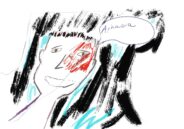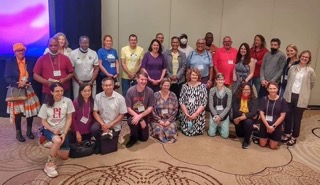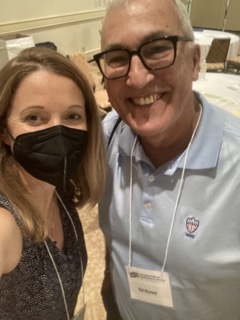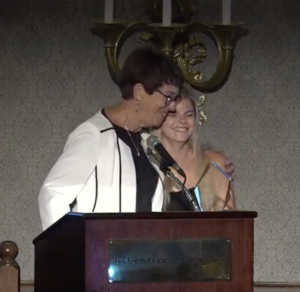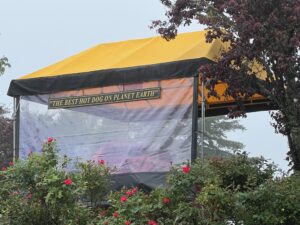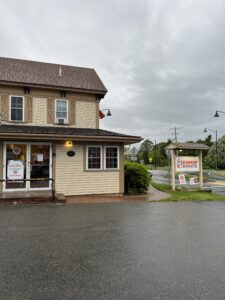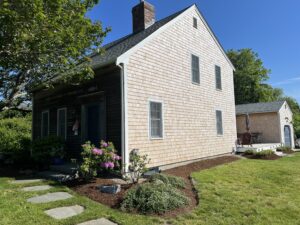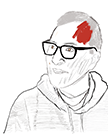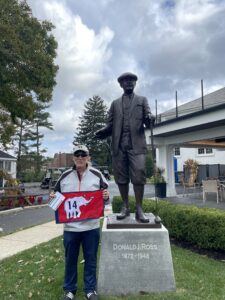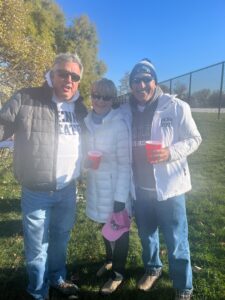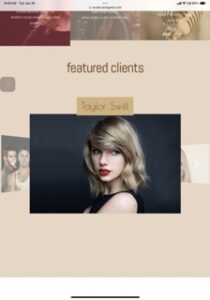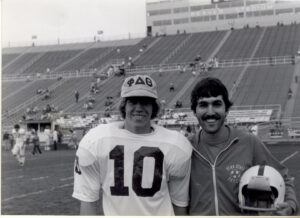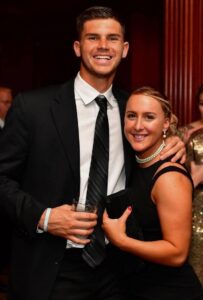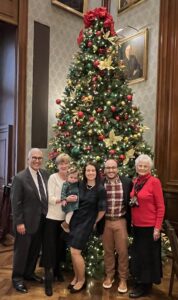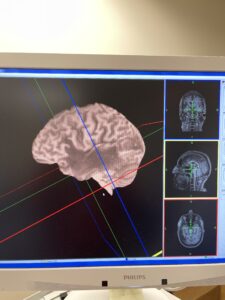Last week I went to the IARC 22 International Aphasia Rehabilitation Conference #IARC22. The event was from Wednesday through Friday.
I have aphasia. I was thinking of joining the conference, but I heard it was for PhDs and clinicians, and I decided not to attend. They had an aphasia stroke group to listen to the presentation, and I attended with my friends from Philadelphia Aphasia Community at Temple and Dr. Gayle Dede.
I am always hard at events with people because I love to talk, and aphasia is difficult to have conversations. It went better than I thought it would.
The first presentation was by Lucy Dipper, a Clinical Linguist at the City University of London, who presented LUNA – treatment for personal storytelling. I was excited. I want to learn how to reach stories. After the presentation, I walked over to her, gave her my card, and told her I have aphasia and have learned to tell stories for two years since I had the stroke. I have worked with Temple to help with this. I met her with Dr. Madeline Cruice, who took my Twitter and told me about aphasia-rocks.com.
Later, I looked at Twitter and found a woman from Pittsburgh. I asked Gayle if she knew Dr. Sarah E. Wallace, a professor. Yes, she was sitting at the table away from me. I gave her my card. On her Twitter, she said, “Met a twitter friend at #IARC2022 @AphasiaRocks thanks for introducing yourself.”
Also, I found a Twitter at Dr. Katie Strong. She is a faculty at Central Michigan University. Their twitter says they have “stories are powerful tools in moving life forward post-stroke and aphasia.” Although I did not meet her, she connected with me, and I hope to connect with her to discuss.
Writing stories is my ability to do something that I lost to aphasia to teach classes and be a consultant. Trying stories makes my dream come true by talking to my friends.
